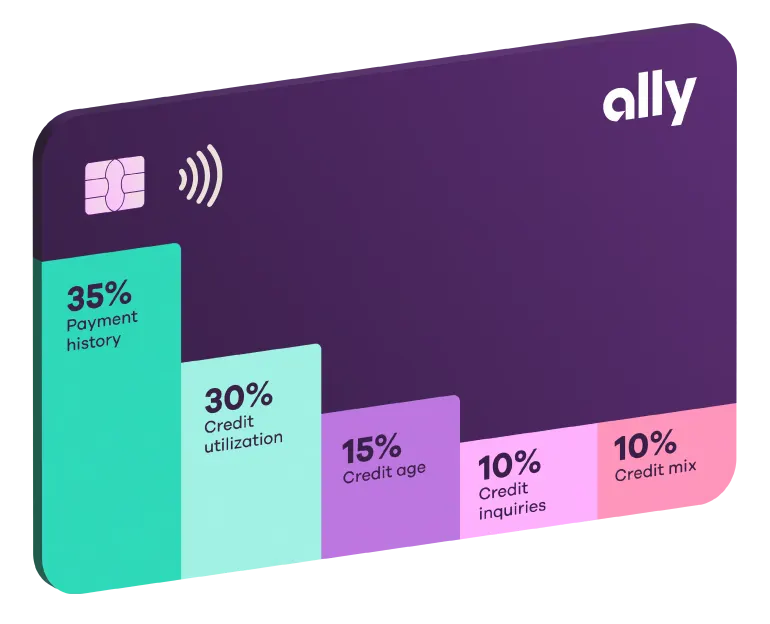What we'll cover
Minimum credit scores according to loan type
How to improve your credit
Loan options for poor credit
If you want to make the switch from renting to owning a home, a good credit score can be essential for getting your foot in the door. While credit scores aren't the only thing lenders consider for mortgage approval, they do carry a lot of weight. So, what is a good credit score to buy a house? The answer can depend on the type of home loan you're applying for.
How important is credit score when buying a house?
Credit score is one of the most important factors in buying a house, as lenders use it to gauge how likely you are to repay a home loan. The higher your credit score, the easier it can be to get approved for a mortgage, as well as help unlock lower interest rates on the loan.
So, does that mean it's impossible to get a mortgage loan with a low credit score? Not necessarily. Some mortgage lenders will lend to borrowers with less than stellar credit. However, a lower score could limit your down payment options to qualify (i.e. you may need to make a bigger one), and your loan may come with a higher interest rate — making the cost of home ownership more expensive.
Minimum credit score needed for each mortgage loan type
Three of the most widely used credit bureaus that provide credit reports are Experian, Equifax and TransUnion. You can get a free copy of your credit report every year from all three bureaus by visiting AnnualCreditReport.com, a site authorized by the federal government.
For most mortgage types, the minimum credit score requirement is 620. This would put you in the “fair credit” range using the FICO score model. (A good credit score is 670 or higher, according to FICO.) But it’s possible to qualify with a credit score below that range, depending on the type of mortgage loan.
View a few different types of purchasing loans and their credit score criteria within the chart below:
Type of Loan | Minimum FICO Score |
|---|---|
Conventional | 620 |
680 | |
FHA loan requiring 3.5% down payment | 580 |
FHA loan requiring 10% down payment | 500 |
VA loan | No minimum score. However, most lenders usually will require that your score be at least 620. |
USDA loan | No minimum score. However, most lenders usually will require that your score be at least 640. |
620 |
Take quiz: Which home loan is right for you?
What changes your credit score?
The majority of lenders use FICO credit scores for mortgage loan approval decisions. These scores, developed by Fair Isaac, are calculated based on five specific factors:

Payment history: 35% of your score
Credit utilization: 30% of your score
Credit age: 15% of your score
Credit mix: 10% of your score
Credit inquiries: 10% of your score
The information used to calculate your credit scores under the FICO model is drawn from your credit reports. When the information in your credit report changes, your credit score can change. (Note: Banking history doesn’t affect your credit score, nor does your employment history, race, age or gender.)
How to improve your credit score
You can build and maintain a good credit score by developing the right financial habits, including:
Pay bills on time.
Maintain low balances on your credit cards to keep your credit utilization at 30% or lower
Increase your credit limits on your cards without increasing your balance (again, this can help to improve credit utilization)
Use different types of credit, such as loans and credit cards
Keep credit cards open to improve your utilization rate
Pay off collection accounts
Limit how often you apply for new credit, especially if you're planning to apply for a mortgage loan in the near future
Dispute any inaccuracies by contacting your credit company and each credit bureau that issued the report
Keep in mind: Improving your credit score doesn’t happen overnight. It can take time for your efforts to be reflected on your credit report and subsequently, in your score.
What else do mortgage lenders consider?
Credit scores are important in the mortgage process, but lenders look at your full financial picture when deciding whether to approve you for a home loan. They also look at these factors:
Income and employment status
Outstanding debts
Assets, including bank accounts and investment accounts
Financial obligations other than monthly bills, such as alimony or child support payments you’re required to make
Delinquencies, bankruptcies and foreclosures
Lenders want reassurance you’ll be able to repay your loan on time. They’ll consider your debt-to-income ratio or DTI, which reflects the percentage of your income that goes to debt repayment each month. The less of your income that’s designated for debt repayment, the better.
Mortgage lenders also analyze the loan terms and the size of your down payment. For example, a larger down payment could help you to qualify for a lower interest rate as the loan becomes less risky for the lender. Increasing your down payment can have another positive side effect if it allows you to avoid paying private mortgage insurance (PMI). Opting for a shorter loan term could also help you to get a lower rate.
If you want a boost to your down payment, check to see if you qualify for Ally Home Grant. Those who are eligible can get a $5,000 grant toward their down payment and closing costs, and the money does not need to be repaid.
Your home loan options if you have bad credit
Less than perfect credit? It’s still possible to qualify for a mortgage loan. To start, you will need to know the mortgage options you might qualify for.
An FHA loan, for example, could be a good choice as it’s possible to get approved with a FICO score as low as 500. Or if you’re an eligible veteran, you might also consider a VA loan because there are no minimum credit score requirements.
Bringing on a co-signer
If you’re still having trouble getting a home loan with poor credit, you may need to delay your purchase and spend some time working on your credit score instead. Another route to consider—some lenders allow you to co-sign with someone who has a higher credit score, so talk to your lender to see if that is an option.
A co-signer is someone who agrees to repay your debt if you default on a loan or miss a payment. A co-signer typically will need a credit score of 670 or better and should be someone with a low DTI. Keep in mind, if you and your co-signer are unable to keep making loan payments, it could drop both of your credit scores and may hurt your chances to get financing in the future.
Tip: If you want a clearer picture of what you can afford, pre-approval can help. With Ally Home, you can get pre-approved online in as little as 3 minutes. And if you’re ready to put in a serious offer on a home, consider a Verified Pre-Approval Letter (VPAL). With a VPAL, you can eliminate potential credit score surprises and house hunt with confidence knowing your documents have undergone a thorough financial review, which includes a hard credit pull.
Your credit score counts
Credit scores are a measure of financial health, and it’s important to understand what credit score is needed to qualify for a mortgage loan. While it’s possible to qualify for a conventional loan with a minimum 620 credit score, individual mortgage lenders may require a higher score.


